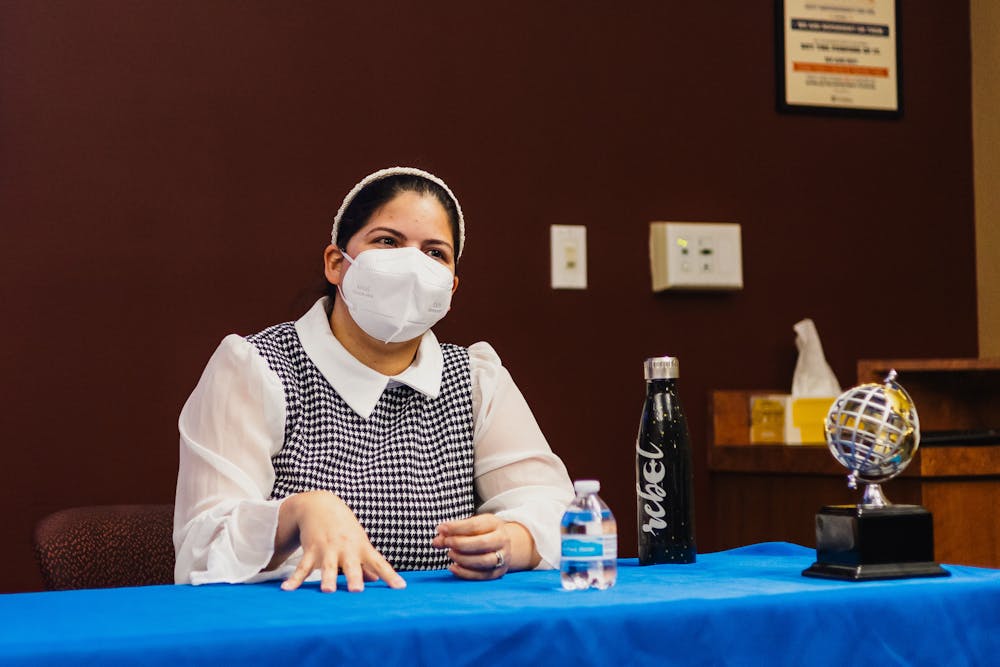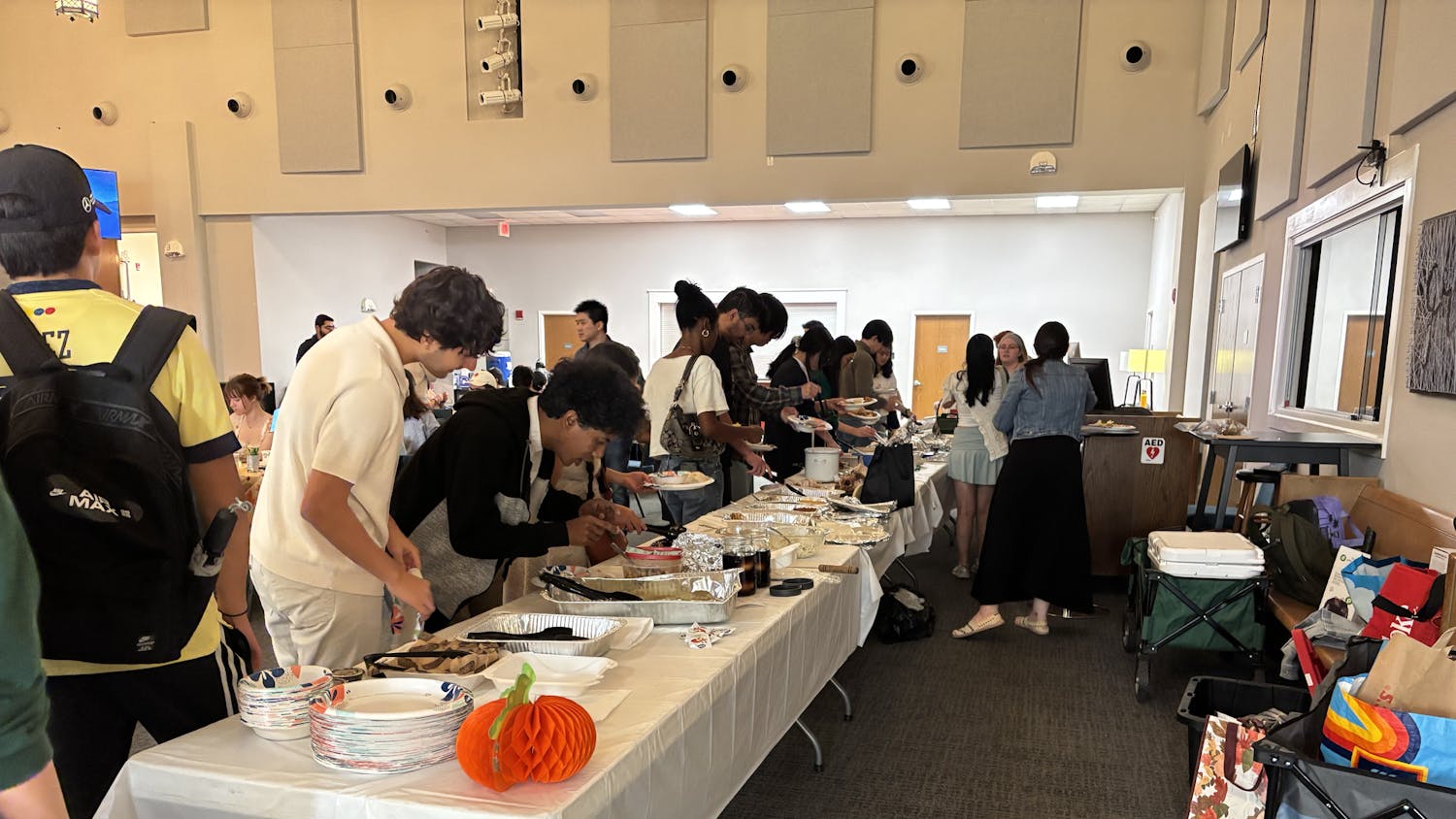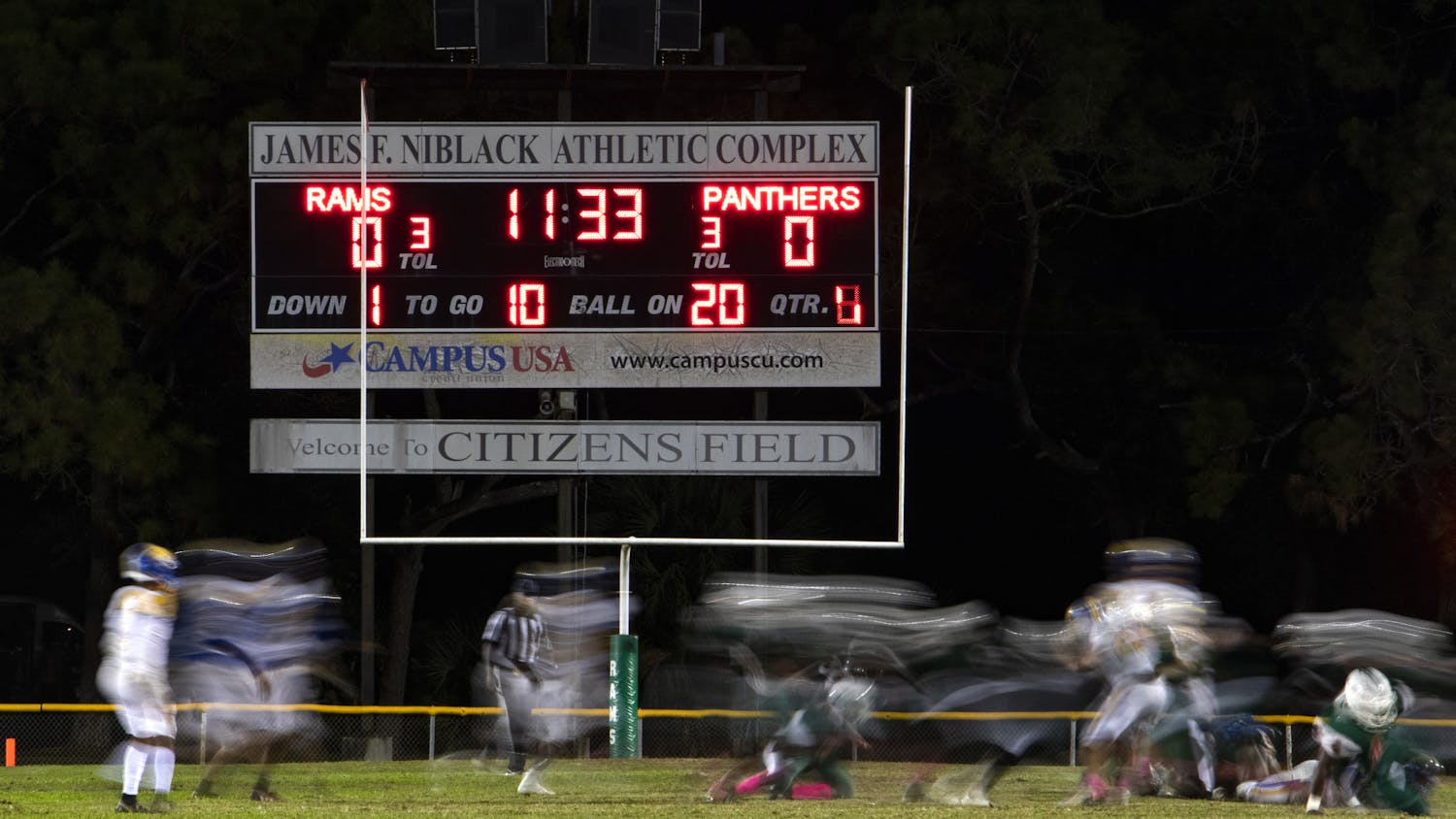The UF CommuniGATORS Bateman Team from the College of Journalism and Communications organized a speaker panel Feb. 13 for its campaign ‘Embrace the Hyphen,’ in collaboration with Culturs Magazine.
Janelle Puckering, a 22-year-old UF public relations and English senior and the team leader for the campaign, said the team began the ‘Embrace the Hyphen’ campaign Feb. 5 to reach a diverse group of people in the Gainesville community.
“The goal that we're working on is to create multicultural communities within Gainesville and safe spaces for people of diverse backgrounds,” Puckering said.
The idea for the panel is for students to walk away feeling inspired and seeing themselves in roles of power, she said.
“These are really powerful women who I hope inspire the students and they can see themselves in these roles in the future,” Puckering said.
The panel covers the topics of cross-cultural identities and what it means to be part of ‘the hyphen.’
“Embrace the hyphen basically means embracing all of your cultural identities,” said Bianca Romero, a 22-year-old UF public relations senior. “Some people have multiple hyphens, like I'm Nicaraguan and Cuban and Guatemalan and American, and it's about straddling those different cultural identities.”
The campaign opts for people to embrace multiculturalism due to the lack of perspective, she said.
“The whole theme of our campaign it's just bringing people together through shared experiences,” Romero said. “Not just your identity or your culture.”
One of the team’s main goals is to see people embrace their efforts, she said.
“We're hoping that we can get more people to just kind of follow our campaign, embrace the hyphen and engage with multiculturalism,” Romero said.
AJ Jung, an assistant instructional professor in the Dial Center and Third Culture Kids researcher, was one of the guest speakers at the panel. She said her own early identity struggles motivated her to speak about multiculturalism.
“As a third culture kid, I didn't know where I belonged,” Jung said. “And as an academic, I started researching Third Culture Kids. I feel more like there's a word for me. The hyphen is a word which has given me a belonging, a place in this world.”
Jung also felt there isn’t just one way to identify oneself; that’s what being multicultural means, she said.
“The idea of embracing the hyphen has changed my understanding of where I'm situated and how I belong and who I belong with, who are my people,” Jung said. “So the experience of understanding the hyphenated identities has made my experience in life dramatically better.”
The hyphen doesn’t have just one meaning for everyone, each person can create their own, Jung said. When people realize that, they can embrace it and not see it as a negative thing, she said.
“Trying to find spaces and ways of expressing our own hidden hybrid identities is a constant struggle,” Jung said. “I think that our society is becoming more embracing of that in general, and that gives me great hope. Being multicultural means that you are less about the dichotomies and more about the blended and the varieties, the shades and flavors of life.”
Iman Zawahry, a lecturer at the CJC and movie producer, spoke about her movie “Americanish” and how it fights with the struggles of multicultural identities at the panel.
“There's three separate Muslim women,” Zawahry said. “All have different intersectionalities and how we all come together and we all have the same wants and loves and likes. Dispelling the stereotypes of Muslim women being timid and shy and hyper sexualized.”
For her, the movie also plays into her self-identification as a Muslim woman in the U.S.
“I'm Brown. I'm Muslim. I'm a woman. I'm Egyptian and I'm a southerner and I'm an American,” Zawahry said. “So, I have so many multi-intersectionalities.”
Zawhary said she wants people attending the conference to learn to accept their multicultural neighbors.
“Pre-understanding to create peace, create love, create acceptance and belonging,” Zawahry said. “Knowing that you're not by yourself, and we all come from different places, and we all have to experience the same exact things.”
Zawahry said ignorance in the community is from a lack of communication and understanding between each other.
“Being able to be accepted, being able to be heard, and that you have the same experience that I have,” Zawahry said. “And we are making it, and we are ‘successful,’ then it's really big. Multiculturalism makes America what America is, and what unfortunately, is not seen because we only focus on one culture at a time.”
Gainesville City Commissioner At-Large Reina Saco, the third speaker at the panel, hopes the students can see that people older than them have shared experiences.
“There are more people with a variety of experiences who are very comfortable talking about this and how we're more similar than different,” Saco said. “I think that really resonated with the attendees, to see a little bit of themselves in other people and to see it's not just these three panelists.”
Saco wants people to talk about their different identities and normalize them.
“It's not a surprise if you hear people speaking Spanish on campus. It's not a surprise if you see someone wear [a] hijab, it's not a surprise if you see a same-sex couple,” Saco said. “I think events like this welcome an opportunity to ask questions, to see us as people.”
For those who speak multiple languages, gaining the confidence to speak their native language is not easy to do, but Saco urges them to just do it.
“One in five people are an immigrant or speak a language other than English as a first language,” Saco said during the panel. “Go speak your language at everybody unashamedly, and just make it normal. Make it normal to hear other languages.”
To Saco, supporting and recognizing a variety of cultural backgrounds is needed as communities become more interconnected.
“I think multiculturalism is the future. I think multiculturalism is the best version of globalization,” she said. “Where you come to accept and adopt and highlight the bits and pieces of different cultures that make you instead of picking one homogenous culture.”
Contact Laura Quintana at lquintana@alligator.org. Follow her on X @LauraCQuintana1.
Laura Quintana is a third year Journalism major. Spring 2024 is her first semester working at The Alligator. Some of the things she likes to do is read, write, and take pictures. Her biggest goal is to become a novelist and travel the world.






